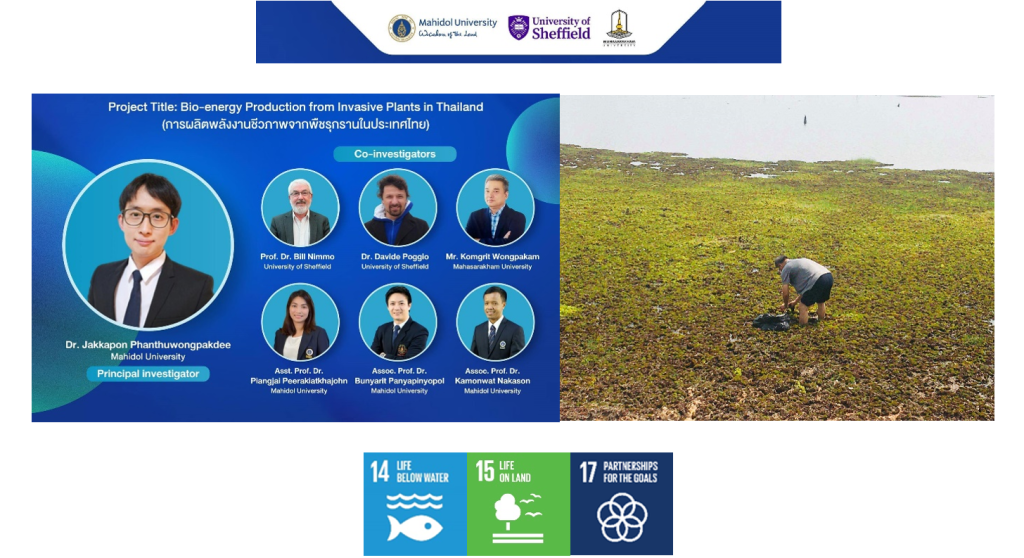14.3.4 Technologies towards aquatic ecosystem damage prevention (direct work)
Mahasarakham University, University of Sheffield and Mahidol University’s research staff to cooperated by researching join in Bio-energy Production from Invasive Plants in Thailand (2023-2025, Mahidol University Grant), Invasive plants such as water hyacinth (Pontederia crassipes), mimosa (Mimosa pigra), water lettuce (Pistia stratiotes), and giant salvinia (Salvinia molesta) are readily available biomass in Thailand. To the best of our knowledge, these invasive plants (except water hyacinth) have never been studied for their bio-energy potential using hydrothermal treatment before. This research would be the first to convert invasive plants in Thailand to bio-oil through the method of hydrothermal liquefaction (HTL). The results would add new insights into the bio-oil production process and provide one of the solutions to the control of invasive species in Thailand. In addition, through an international collaboration, anaerobic digestion (AD) will be performed on the invasive plants. The technique will determine the bio-gas production potential of invasive plants, and the results will enable a broader understanding of the different pathways to produce bioenergy from invasive plants. the project can be expanded to the management of invasive plants for bioenergy. Together, these might create a new way of bioenergy production system from the management of invasive plants at a local level.
